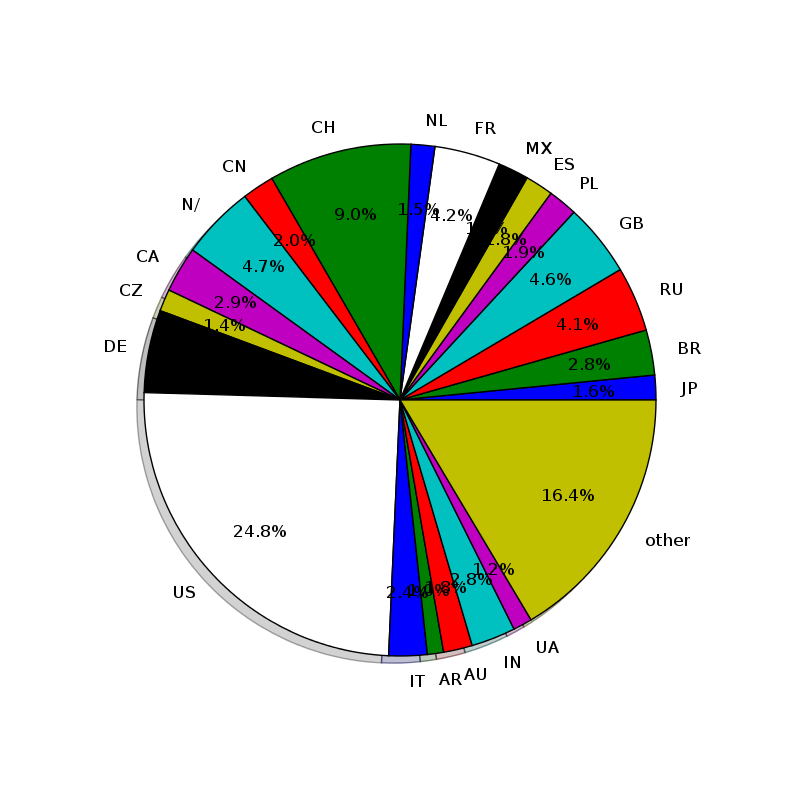The latest MirrorManager release (0.6.1) which is active since
2015-12-17 in Fedora's infrastructure has a few additional features
which provide insights into the mirror network usage.
The first is called
statistics.
It gives a daily overview what clients are requesting. It analysis the
metalink and mirrorlist accesses and draws diagrams. Each time the local
yum or dnf metadata has expired a new mirrorlist/metalink is requested
which contains the 'best' mirrors for the client currently requesting
the data. The current MirrorManager statistics implementation tries to
display how often the different
repositories
are requested from which
country
for the available
architectures:
In addition to the statistics where the clients are coming from and
which files they are interested in the old code to draw a map of the
location of all mirror servers has been re-enabled:
maps
Another new visualization tries to track the propagation. The time the
existing mirrors need to carry the latest bits. A script connects to all
enabled mirrors and checks which repomd.xml file is currently
available on the mirror. This is done for the development branch and all
active
branches.
The script displays how many mirrors have the current repomd.xml file
or if the mirror still has the repomd.xml file from the previous push
(or the push before) or if the file is even older:
Propagation.
Another relevant change in Fedora's MirrorManager is that it is no
longer possible to enter FTP
URLs.
This is the first step to remove FTP based URLs as FTP based mirrors
are often, depending on the network topology, difficult to connect to,
other protocols (HTTP, RSYNC) are better suited and more mirror server
are not providing FTP anyway.
